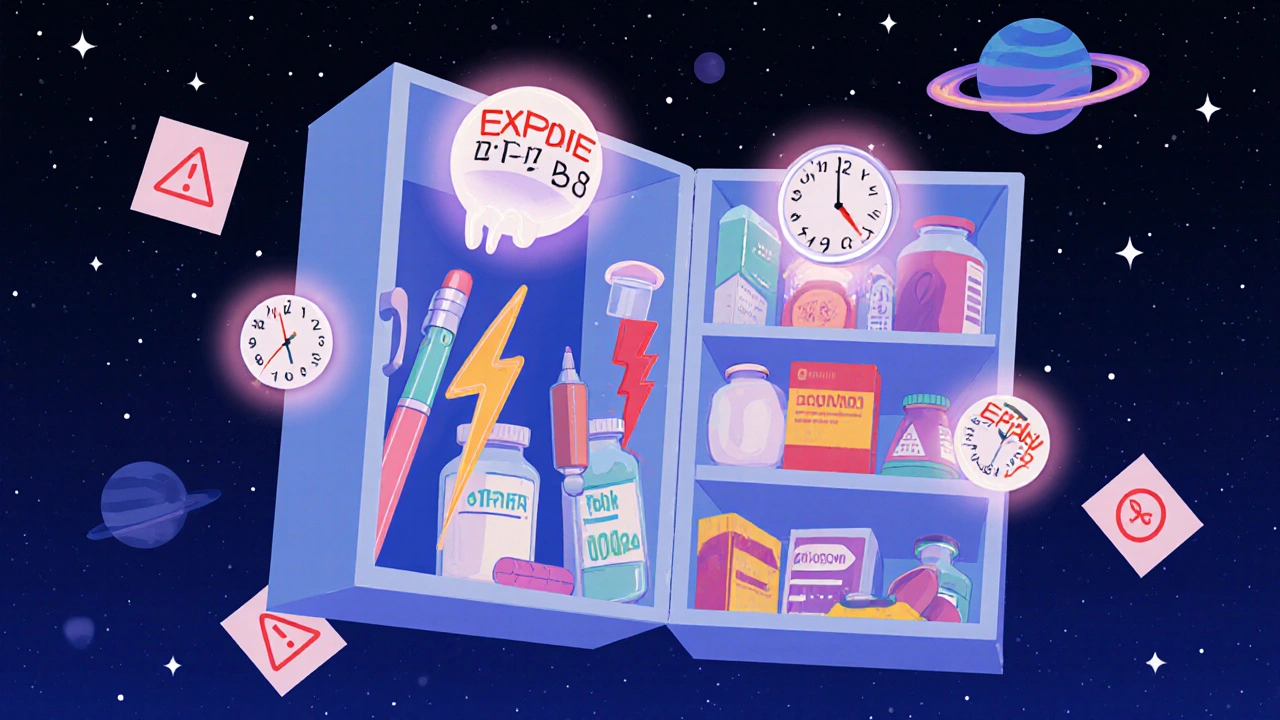Expired Drugs: What Happens When Medications Go Bad and What to Do
When you find an old bottle of pills in the back of your medicine cabinet, you might wonder: expired drugs, medications past their labeled expiration date that may no longer work as intended or could pose health risks—are they dangerous, or just weak? The truth isn’t simple. The FDA requires expiration dates based on stability testing, but many drugs remain safe and effective well past that date. Still, some—like insulin, nitroglycerin, or liquid antibiotics—can break down quickly and become risky. You don’t need to panic over a year-old ibuprofen, but you shouldn’t take antibiotics that expired two years ago for a new infection.
Storage matters just as much as time. Heat, moisture, and light can wreck a pill long before its printed date. A bottle left in a bathroom cabinet? That’s a recipe for degradation. A bottle kept in a cool, dry drawer? It likely still works. drug expiration dates, the manufacturer’s guarantee of full potency and safety under proper storage conditions aren’t magic kill switches—they’re guidelines. But they’re guidelines you should respect, especially for life-saving meds. If your epinephrine auto-injector expired last month, don’t wait. Replace it. If your blood pressure pill is six months past its date and you’re out of refills? Call your pharmacy. Don’t guess.
storing medications, keeping drugs in conditions that preserve their chemical structure and effectiveness isn’t just about safety—it’s about getting real results. A weakened antibiotic won’t kill your infection. A degraded thyroid pill won’t regulate your metabolism. And if you’re giving expired meds to a child or elderly parent, you’re playing with unpredictable outcomes. disposing of expired pills, the safe, legal way to get rid of unused or outdated medications is just as important. Don’t flush them. Don’t toss them in the trash where kids or pets might find them. Use a drug take-back program at your pharmacy or local police station. If none exist, mix pills with coffee grounds or cat litter, seal them in a container, and throw them out. It’s not glamorous, but it’s responsible.
There’s a lot of confusion out there. Some people think expiration means "poisonous." It doesn’t. Others think all meds are fine for years past their date. That’s risky. The science is mixed, but the advice isn’t: when in doubt, replace it. Especially for critical conditions. And if you’re unsure whether a pill is still good, ask your pharmacist. They’ve seen it all—expired insulin, moldy inhalers, pills that turned to dust. They won’t judge. They’ll help.
Below, you’ll find real stories and clear guides on what happens when medications age, how to tell if they’ve gone bad, and how to handle them safely. Whether you’re worried about your grandma’s heart pills, your kid’s allergy medicine, or that bottle of painkillers you haven’t touched since last winter—there’s something here that’ll help you make smarter, safer choices.
How to Create a Medication Expiration Review Schedule
Learn how to create a simple, effective medication expiration review schedule to avoid unsafe or ineffective drugs. Step-by-step guide for home use, with tips on storage, disposal, and high-risk meds.
More
